
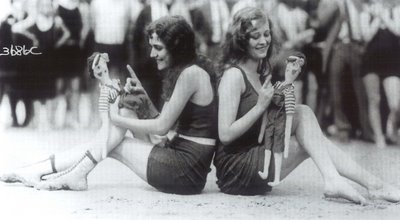
Monday Glamour Starter --- Dolores Costello
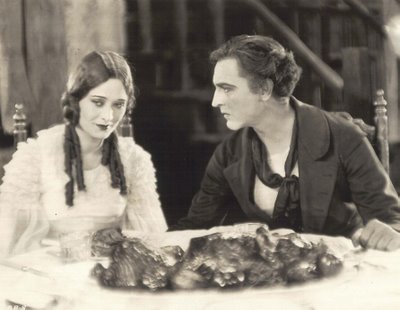
Dolores Costello was another of those silent stars that had a bad talkie experience. She also had a bad John Barrymore experience, as had others. Life between the two was pretty harrowing for those years when she was Warner Bros.’ biggest feminine lead and married to that profile of profiles. By the time she was in her mid-thirties, Dolores was disposed of both Barrymore and her own stardom. Surely there were lessons along the way for her to pass down to various troubled offspring in that tormented theatrical family, though she’d share few of these with a public who’d by now forgotten the most preposterously lovely creature in all the world (John Barrymore’s initial words in describing Dolores). Her fashion in dewy-eyed, patrician beauties was a vogue that came and went as quickly as talkies arrived to supplant the silents. Were it not for the all-too brief rapture of marriage to J.B., she might have suffered the career loss more grievously, but in the end, she was content in her retreat to the modest quiet of an avocado ranch in Fallbrook, California. There were shelves of Jack’s old first editions if a quick infusion of cash was needed, but otherwise, I’d like to imagine Dolores enjoyed a largely secluded retirement after the fashion of Harold Bissonette among his orange groves at the happy end of It’s A Gift.
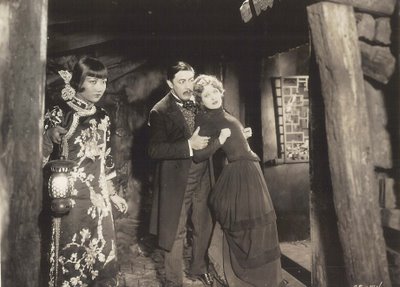
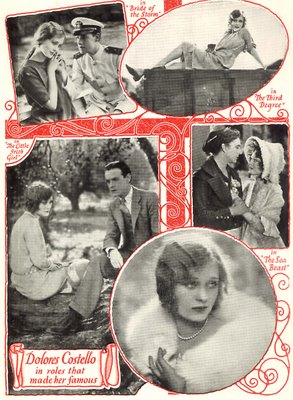
Dolores was predisposed to tolerate Barrymore’s excesses by her background, if not temperament, for she’d been born to a theatrical dynasty of her own. Maurice Costello was an ac-tor of the grand tradition being gently ushered offstage by changing audience tastes and his own proclivities toward roustabouting and cork removal. His brief respite with silent melodrama paved the way for little Dolores and sister Helene to enact child parts opposite their father, while bulldozer matriarch Mae Costello laid plans for eventual family life sans Maurice. Sure enough, by the time the girls were teens, he was off on permanent caprice and Mother took over. Dolores blossomed in the role of precocious chorine with George White’s Scandals, and made a fetching model for James Montgomery Flagg’s commercial art. These were the paths to a Warner contract that brought her into contact with John Barrymore, who immediately drafted Dolores as leading lady in The Sea Beast, his silent adaptation of Moby Dick. Dolores’ co-star, twenty plus years her senior, inspired the dead faint that ensued when he insisted on shooting their scorching love scenes first. Jack’s impassioned pursuit continued off the set as well, but it took three years, and a determined end run around Mae Costello, before Jack’s dream of a final consummation could be fulfilled. By this time, Dolores had become Warner’s most valuable feminine asset. With the arrival of sound, her prospects seemed limitless. Indeed, she would become the first major star recorded on Vitaphone after Jolson, but would Dolores share Al’s triumph on disc? She would not.
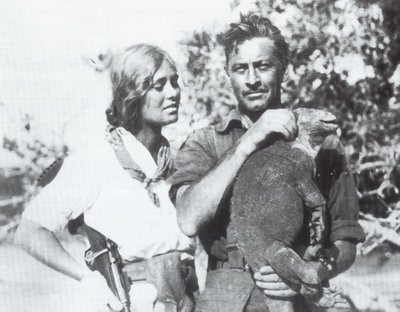
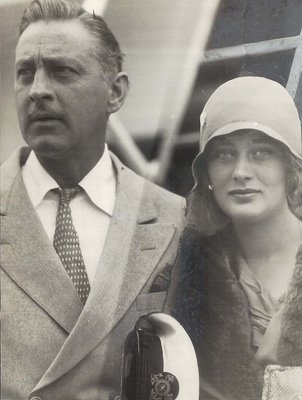
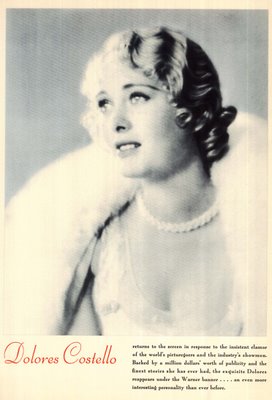
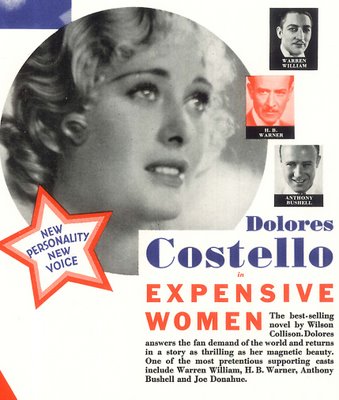
Dolores Costello got almost as raw a deal in talkies as Jack Gilbert, but it never bothered her as much. Neither she nor the technicians were prepared for the rushed debut of Tenderloin and Glorious Betsy, two that opened by the Spring of 1928, well before kinks were ironed out of Warner’s revolutionary sound process. Indeed, she got blame for much of what went wrong in the booth, be it scratchy discs, bad sync, or poor amplification. Mercy, mercy, have you no sister of your own? was a line delivered without incident on the set of Tenderloin, but it would achieve immediate catch-phrase immortality by the time it filtered through those speakers. Merthy, merthy, have you no thither of your own? Everyone assumed this was Dolores’ natural voice. Granted, her delivery needed work, but no more so than a hundred others in an industry filled with untrained and uncertain voices. Reviews now led off with "Poor Dolores…." Ridicule was heaped atop scorn. Director William DeMille caught Glorious Betsy in its Hollywood premiere and observed that Poor Dolores Costello’s excellent voice came out at times as a deep rich baritone, while Conrad Nagel thundered in a sub-human bass. It was obvious she’d been delivered up as a stalking horse to launch Vitaphone. After all, they had to put someone’s name on the marquee. Overexposure in hurried vehicles killed off many a lesser name, but few had withdrawn amidst such embarrassing catcalls. Poor Delores --- there are two opinions in Hollywood as to what her mike voice sounded like. One clique says it sounded like the barkings of a lonesome puppy; the others claim it reminded them of the time they sang "In The Shade Of the Old Apple Tree" through tissue paper folded over a comb. That was Photoplay’s assessment as of December 1930. By then, Dolores was on sabbatical --- undergoing intensive voice training, according to Warner publicists. By the time she came back (after a two year break), the parade had rushed her by. Even the studio’s assurance of a "new voice" could not dim audience memories of a faded star they’d laughed off the talking screen.
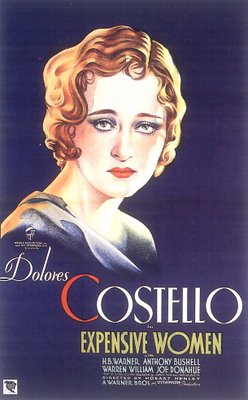
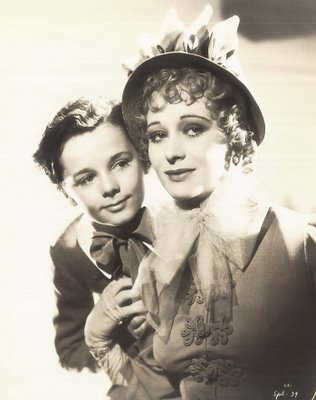
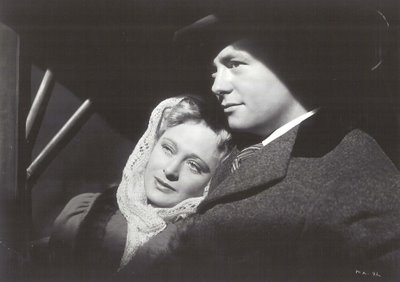
There were seven years with John Barrymore. She was said to have been positively saintly in her determined efforts to straighten him out, but as brother Lionel put it, Jack couldn’t stand monotony and he had a dread of being possessed by people. This was not a man capable of settling down, except with his drinking cohorts and a willing, short-term, concubine. Dolores tried again at performing, but age weighed heavier upon her than most, and that stoic beauty took on a matronly cast altogether suitable as Freddie Bartholomew’s mother in Little Lord Fauntleroy. Work was sporadic after that. There were unsettling stories about harsh make-up having damaged her face. Those unblemished cheeks were now deteriorated --- disintegrated (!) --- almost eaten away (!!). It all depended upon whom you read on the subject. The effects weren't apparent in The Magnificent Ambersons, but Orson Welles’ casting of her was more a matter of paying homage to the silent era than any recognition of talent. She would bow out for keeps after This Is The Army in 1943, and shunned interviews for decades thereafter. When Barrymore biographers approached her in the late seventies, Dolores was finally ready to talk, but no one seemed interested in her own career, other than Kevin Brownlow, whose Hollywood series captured the first and only on-camera appearance she’d make during the retirement years. Uncharitable observers said she looked like an old Irish washerwoman, which begs the question as to how many of us have had any actual exposure to old Irish washerwomen. If nothing else, she seems to have assumed mother Mae's role as stern family matriarch, and much of her old age was spent trying to extricate Barrymore children and grandchildren from various compromising situations. The lavish scrapbooks of her life with John Barrymore eventually saw publication in a recent oversized book celebrating the first family of acting, and it’s available HERE. Dolores died in 1979 at the age of seventy-five.
Photo Captions
Warner studio portrait
Participating in a beauty contest with sister Helene
With John Barrymore in The Sea Beast
With Warner Oland in Old San Francisco
Montage of Warner Bros. roles
Honeymooning with John Barrymore
Exhibitor Manual page on Dolores
With husband John Barrymore
Trade Ad promises a "new voice" for Dolores
One Sheet --- Expensive Women
With Freddie Bartholomew in Little Lord Fauntleroy
With Tim Holt in The Magnificent Ambersons
1 Comments:
Again a great glamour starter! I knew very little about Dolores and it was great learning more about her. Just one question: what is it that JB is holding in that picture with Dolores holding the gun? It looks like a turtle without the shell
Post a Comment
<< Home